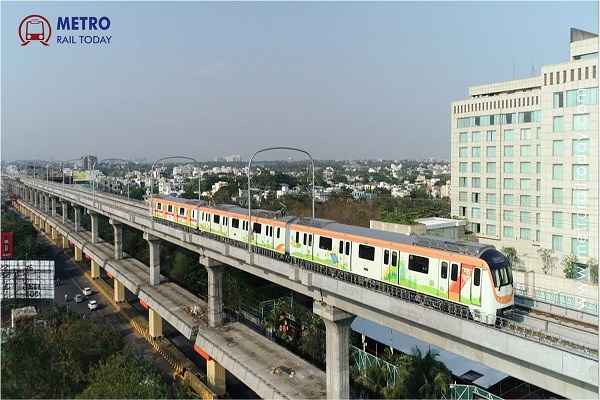 Three firms bid for Automatic Fare Collection System Contract for Nagpur Metro Phase 2
Three firms bid for Automatic Fare Collection System Contract for Nagpur Metro Phase 2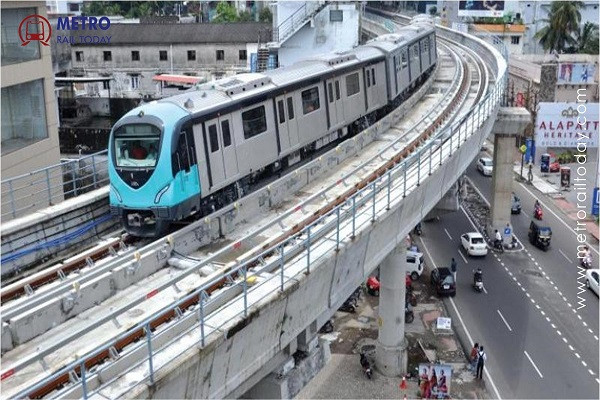 Three Firms shortlisted for Third Rail Electrification Contract of Kochi Metro Phase 2
Three Firms shortlisted for Third Rail Electrification Contract of Kochi Metro Phase 2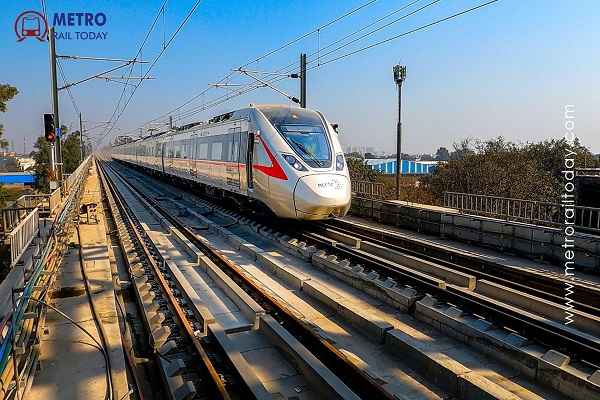 Construction for Delhi-Gurugram-Alwar Namo Bharat RRTS Corridor likely to begin in August 2026
Construction for Delhi-Gurugram-Alwar Namo Bharat RRTS Corridor likely to begin in August 2026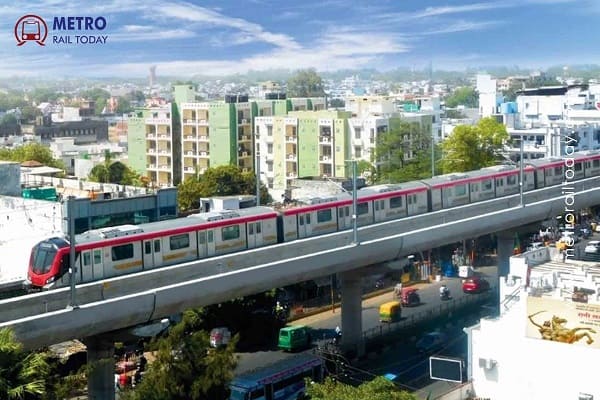 Two firms compete for Detailed Design Consultancy Contract of Lucknow Metro Line 2
Two firms compete for Detailed Design Consultancy Contract of Lucknow Metro Line 2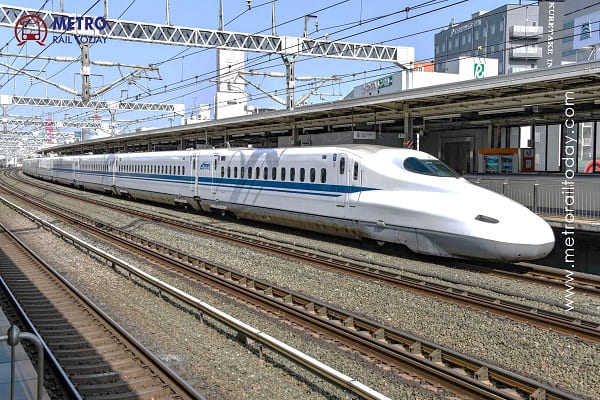 First tender launched for 240 km Amritsar–Jammu High-Speed Bullet Train Corridor
First tender launched for 240 km Amritsar–Jammu High-Speed Bullet Train Corridor How Ashwini Bhide’s vision shaped Mumbai Metro Line 3 and redefined Urban Mobility?
How Ashwini Bhide’s vision shaped Mumbai Metro Line 3 and redefined Urban Mobility?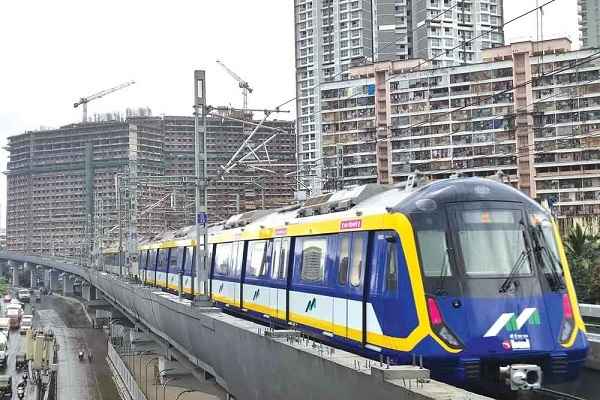 Titagarh Rail Systems Bags ₹2,481 Crore Rolling Stock Contract for Mumbai Metro Line 5
Titagarh Rail Systems Bags ₹2,481 Crore Rolling Stock Contract for Mumbai Metro Line 5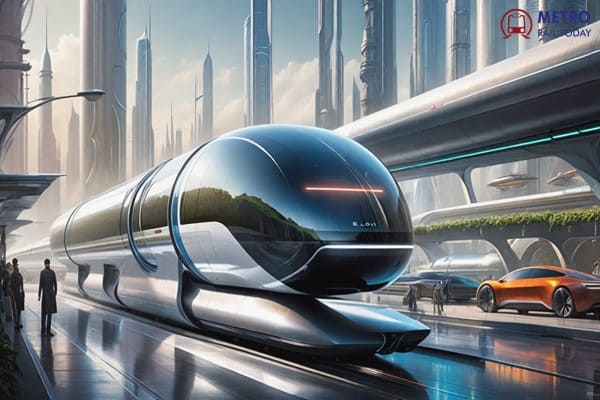 DP World, Deendayal Port and Nevomo join hands to Pilot Magnetic Rail Cargo Movement in India
DP World, Deendayal Port and Nevomo join hands to Pilot Magnetic Rail Cargo Movement in India DMRC signs MoU with MapMyIndia to intergrate Delhi Metro Rail Network with Mappls App
DMRC signs MoU with MapMyIndia to intergrate Delhi Metro Rail Network with Mappls App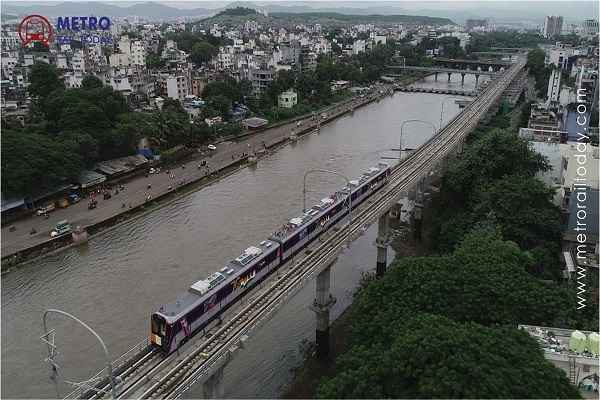 Maharashtra approves Tripartite MoU for Pune Metro Phase 2 Extensions
Maharashtra approves Tripartite MoU for Pune Metro Phase 2 Extensions
Role of the Steel and Metal Industry in Rail and Metro Sectors
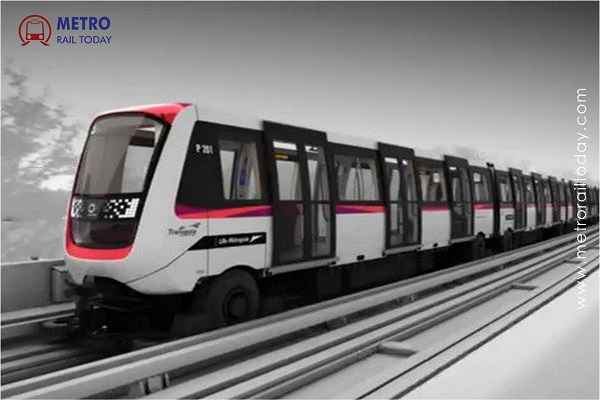
In the dynamic world of urban transportation, rail and metro systems are the lifelines that connect bustling cities. Behind the construction and development of these innovative networks stands an industry that plays a pivotal role: the steel and metal sector. This in-depth article explores the vital contributions of the steel and metal industry in the rail and metro sectors, highlighting its significance in infrastructure, rolling stock, and sustainability efforts.
Infrastructure Development
The steel and metal industry forms the backbone of rail and metro infrastructure. From tracks and bridges to platforms and tunnels, steel is the material of choice due to its exceptional strength, durability, and versatility. Steel tracks provide a stable foundation for trains, enabling safe and smooth operations. Bridges and viaducts constructed using steel components facilitate seamless travel over challenging terrain, while steel-reinforced tunnels ensure structural integrity. The industry's ability to provide high-quality steel products in large quantities and meet demanding construction schedules is crucial for the timely completion of rail and metro projects.
Rolling Stock Manufacturing
Steel and metal materials are fundamental to the manufacturing of rolling stock, including train bodies, underframes, and components. The industry's expertise in producing lightweight yet robust steel alloys plays a pivotal role in enhancing energy efficiency and reducing operational costs. Steel's exceptional strength-to-weight ratio allows for the construction of efficient and aerodynamic train designs, resulting in reduced energy consumption and lower carbon emissions. Furthermore, steel's durability and resistance to impact ensure passenger safety, making it an indispensable component of rolling stock manufacturing.
Safety and Reliability
Safety is paramount in rail and metro systems, and the steel and metal industry contributes significantly to ensuring secure operations. Steel's inherent properties, such as its resistance to fire, seismic forces, and extreme weather conditions, make it an ideal material for critical infrastructure components. Steel's ability to withstand high loads and impact forces safeguards against accidents and ensures the reliability of rail and metro networks. Additionally, steel's durability minimizes the need for frequent maintenance and repairs, reducing service disruptions and improving passenger satisfaction.
Sustainable Practices
The steel and metal industry recognizes its responsibility towards environmental sustainability and has made substantial strides in reducing its environmental footprint. The production of steel and metal involves energy-efficient processes, such as recycling and the use of scrap materials. Steel is highly recyclable, enabling a circular economy approach in which end-of-life steel products are collected, processed, and reused. This reduces the demand for virgin resources and minimizes waste generation. Furthermore, the industry invests in research and development to develop eco-friendly alloys and coatings that improve corrosion resistance and prolong the lifespan of steel infrastructure.
Technological Advancements
The steel and metal industry continues to innovate, driving advancements in rail and metro systems. Research and development efforts focus on improving steel properties, including strength, corrosion resistance, and thermal insulation. Advanced manufacturing techniques, such as additive manufacturing and precision engineering, enable the production of intricate and customized components, optimizing performance and resource utilization. Furthermore, the industry collaborates with rail and metro operators to develop intelligent systems and technologies that enhance safety, efficiency, and passenger experience.
Conclusion
The steel and metal industry is a cornerstone of progress in the rail and metro sectors, facilitating the development of safe, reliable, and sustainable transportation networks. From infrastructure construction to rolling stock manufacturing, steel and metal materials provide the necessary strength, durability, and efficiency required for seamless operations. By embracing sustainable practices and driving technological advancements, the industry continues to play a crucial role in shaping the future of rail and metro systems worldwide. As urban populations grow and mobility demands increase, the steel and metal industry's dedication to excellence will fuel the continued progress of these vital transportation networks.




